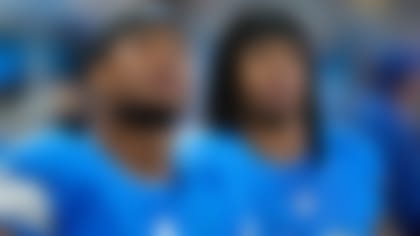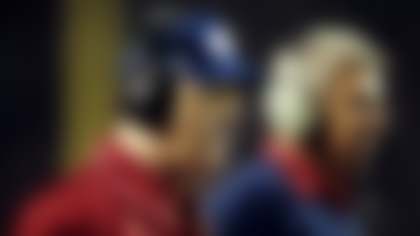By Bill Bradley, contributing editor
Arizona Cardinals quarterback Carson Palmer might be suffering from the most talked-about injury this season.
Palmer, who is practicing again this week after missing the past three games, has been suffering from an axillary nerve contusion his right shoulder. The condition, which affects the nerve endings in arm, began to worsen the day after he was tackled on that shoulder during the Cardinals' season opener Sept. 8.
The Cardinals have said the injury is neither career-ending nor season-ending. They are hopeful he can play this Sunday. NFL.com reported Thursday the nerve has "woken up."
Yet why is this type of injury so hard to manage and so frustrating to rehab?
"Injuries to nerves of the extremities, such as the axillary nerve, typically occur from either a direct blow or stretch of the arm or leg," said Dr. Matthew J. Matava, president of the NFL Physicians Society and head team physician for the St. Louis Rams, in an email interview this week. "Either mechanism can produce weakness to those muscles innervated by the nerve, as well as numbness, tingling, or a 'dead' sensation in the specific area of the extremity innervated by the particular nerve.
"Nerve function can be evaluated initially and over time during recovery by an electromyography (EMG) and/or nerve conduction velocity tests. The vast majority of these injuries are treated conservatively (no surgery) consisting of avoidance of repeat pressure to or stretching of the nerve, strengthening exercises to the muscles it innervates, and graduated return to play once the player regains function of the involved extremity."
Matava said there are proven medications that can stimulate the nerve function. In Palmer's case, the Cardinals said he has tried many non-traditional treatments, such as electrical stimulation, acupuncture and dry needling.
Palmer is not the only high-profile player to deal with nerve issues. Denver Broncos quarterback Peyton Manning endured four surgeries and had to miss the 2011 season in order to overcome nerve disorders in his neck. Manning has said that he took almost two years for his arm strength to fully recover from the nerve issues.
"The timing of recovery is extremely variable and may take a few days or up to several months depending on the type and severity of the injury," Dr. Matava said. "In general, the outcome of these injures is favorable as there are usually no long-term complications once the nerve recovers.
"However, there may be permanent muscle weakness and loss of sensation if the nerve fails to recover completely."



